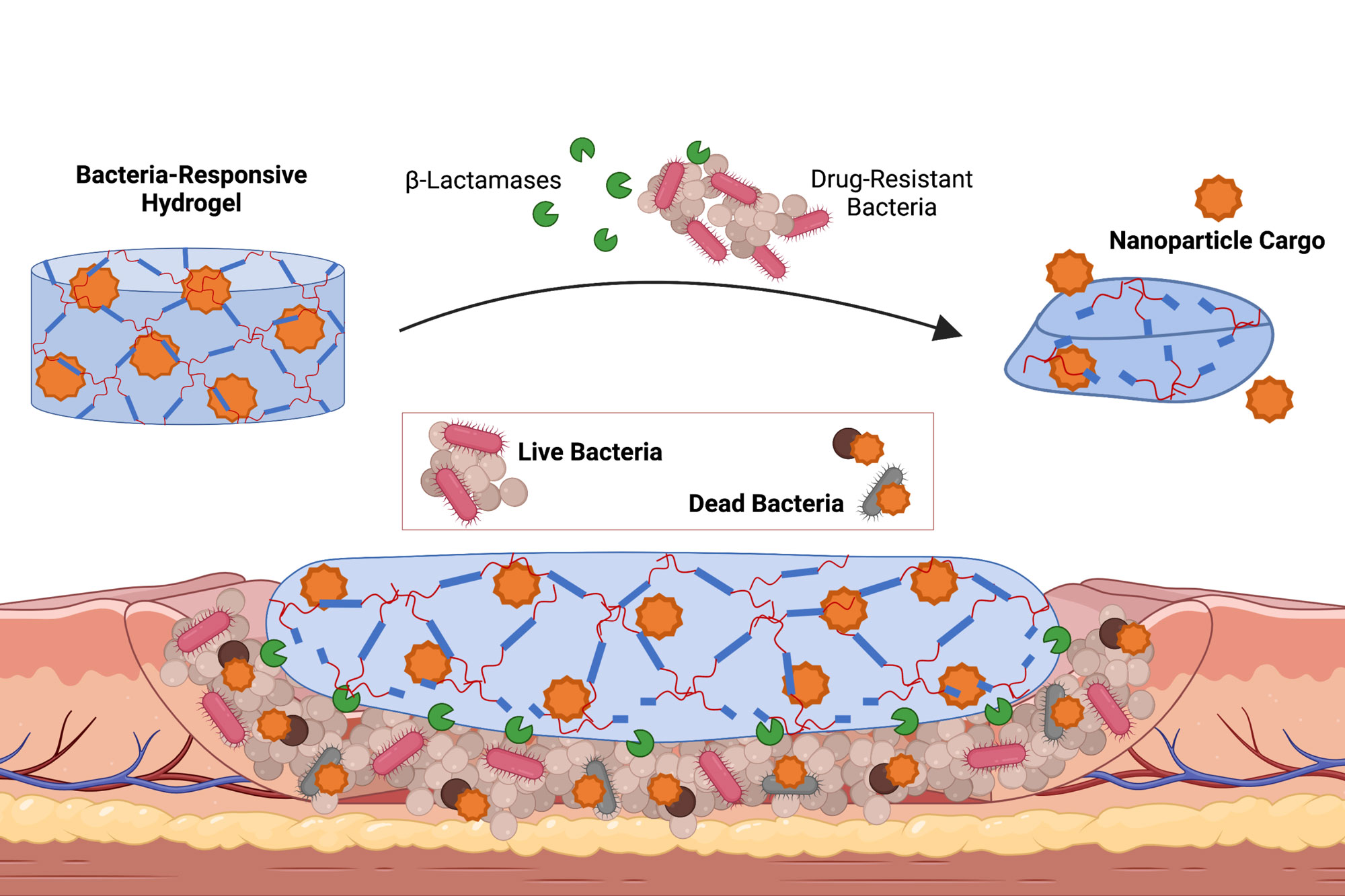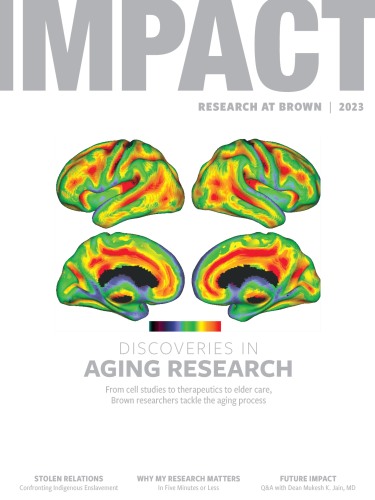Brown Invents

The rapid spread of antibiotic-resistant bacteria is causing serious global public health and environmental issues. Beta‐lactamases, common enzymes released by a variety of harmful bacteria, destroy antibiotics and are a major cause of drug resistance. Anita Shukla, an associate professor in Brown’s School of Engineering, and her graduate students developed a responsive bacteria-triggered drug-delivery system that could be used to make wound dressings and deliver medication on demand. The system consists of antibiotic-loaded hydrogels that respond to the presence of beta-lactamases by degrading to release encapsulated therapeutic nanoparticles. Such smart hydrogels could be used in diagnostics to reduce the amount of drug needed for treatment, in turn limiting side effects and the development of antibiotic resistance and increasing the lifetime of newly introduced antibiotics. The new material was described in a 2022 issue of the journal ACS Applied Materials & Interfaces.
